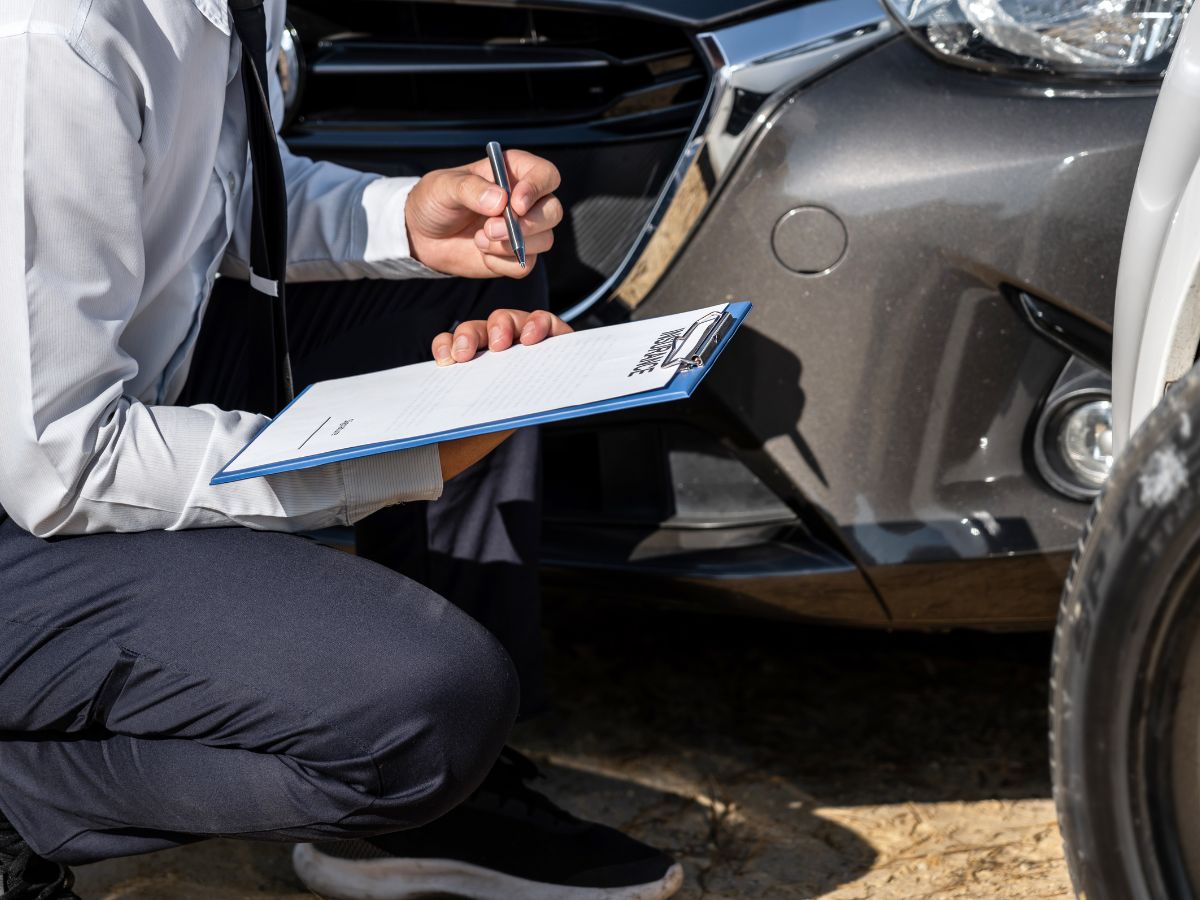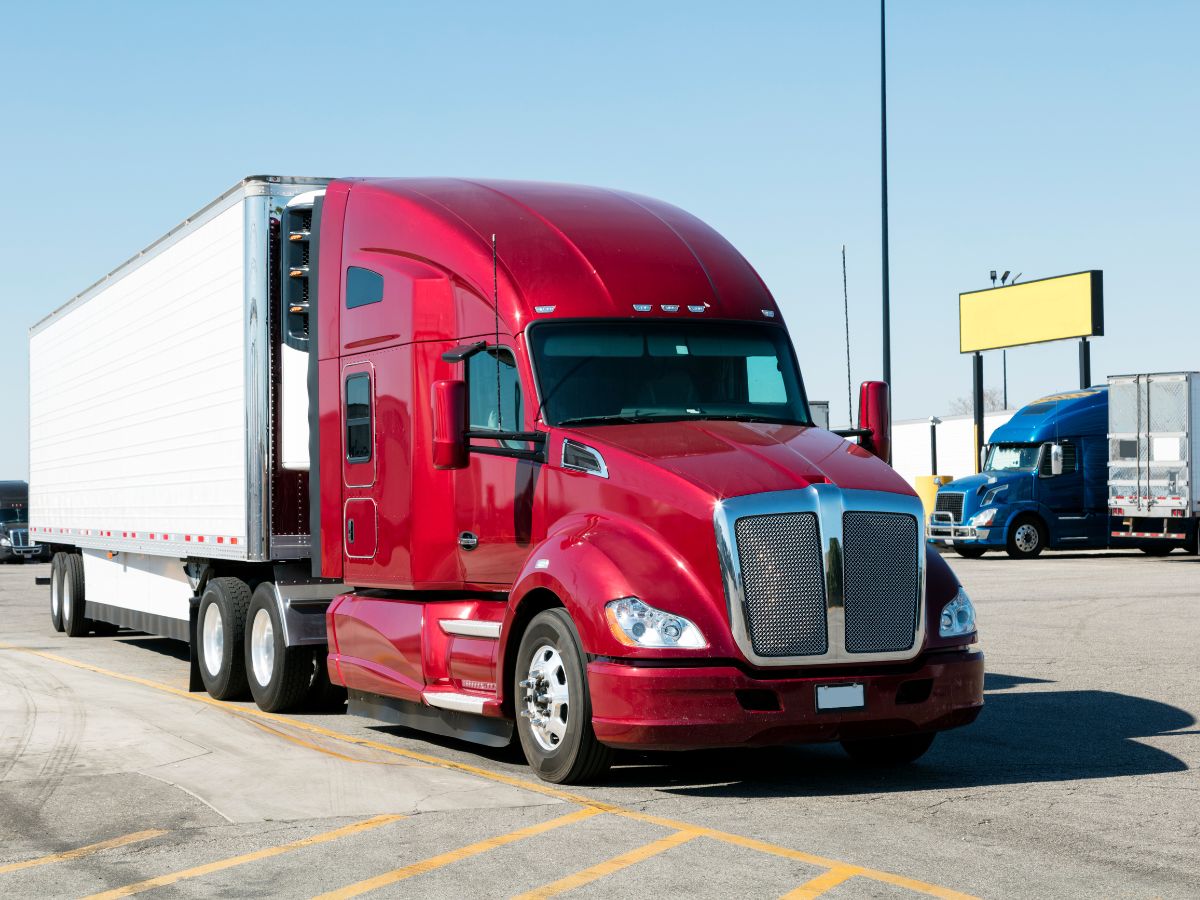In This Article Show
Over the years, I’ve tinkered with engines, changed countless tires, and spent time deciphering the administrative side of the transportation world. And yes, that means understanding the relationship between DOT numbers and insurance.
I’ve encountered many misconceptions about DOT Numbers during my time at the garage and while writing these blog posts. Some of these misconceptions can be tricky, leading many to question: Can I get a DOT Number without insurance? Lets dive in.
NEW: Can I Get a CDL with 2 DUIs?
Why Insurance is Associated with DOT Numbers
When we think of DOT Numbers, it’s often in the context of vehicle identification and compliance. However, insurance enters this picture because it’s fundamentally tied to safety and accountability. Let’s unpack this:
1. Safety Regulations and Their Significance
The Department of Transportation (DOT) primarily emphasizes safety. It’s their top priority to ensure that commercial vehicles on the road don’t pose risks to other motorists. Insurance guarantees that in case of accidents or mishaps, funds are available to address damages or injuries.
2. Protecting Public Interests
By mandating insurance before granting certain DOT privileges, the DOT ensures that businesses take responsibility for their vehicles and drivers. In a way, it’s about making sure the public doesn’t bear the brunt of commercial vehicle accidents.
3. Risk Mitigation for Businesses
Insurance isn’t just for the benefit of the public; it’s for the businesses as well. Accidents can lead to huge financial burdens. Having insurance can mean the difference between a manageable setback and bankruptcy.
4. Reinforcing Credibility and Trust
When a company is both DOT-compliant and insured, it sends a message to potential clients or partners: “We prioritize safety and professionalism.” It’s a mark of a business that understands its obligations and stands ready to meet them.
In essence, the link between DOT numbers and insurance isn’t arbitrary. It’s a systematic approach to ensuring that our roads remain as safe as possible, while businesses also protect their interests.

Can You Get a DOT Number Without Insurance?
The direct answer is both yes and no, depending on the specific scenario, and here’s what you need to know:
1. Initial Application
When you first apply for a DOT Number, you aren’t immediately required to provide proof of insurance. This means that technically, you can obtain a DOT Number without insurance at that exact moment.
2. Activation of the DOT Number
However, the story changes when it’s time to activate the DOT Number and put it to use. Before you can operate commercially on the road, you must have the appropriate insurance coverage.
The Federal Motor Carrier Safety Administration (FMCSA) requires proof of this insurance, and they’ll cross-check to ensure your coverage aligns with federal requirements. Only with this insurance proof will your DOT Number become active and operational.
3. Type of Operation Matters
The specific type of insurance and its coverage amount can vary depending on the type of operations you’ll be engaging in. For instance, a company transporting hazardous materials will have different insurance requirements compared to a company moving non-hazardous goods.
4. State Variations
While the DOT Number is a federal requirement, individual states may have their own insurance prerequisites. It’s always a good practice to check with local transportation agencies to ensure you meet all necessary guidelines.
In Essence
While you can initially obtain a DOT Number without insurance, insurance is an unavoidable component to operate and take full advantage of that number legally. It ensures you’re protected, compliant, and ready to roll safely on our roads.
The Application Process for a DOT Number
Applying for a DOT Number might sound daunting, but it’s a straightforward process when you know the steps. Let’s walk through it:
1. Determine Eligibility
Firstly, you need to ascertain if you actually need a DOT Number. This is mainly for companies involved in interstate commerce, transporting passengers or goods, especially if the vehicle has a gross weight of 10,001 pounds or more.
2. Online Registration
The most efficient way to apply is through the Federal Motor Carrier Safety Administration (FMCSA) online registration system, called the Unified Registration System (URS).
2. Provide Company Information
During the application, you’ll be required to provide details about your company, including:
- Business name and type (e.g., LLC, Corporation).
- Address and contact details.
- Type of cargo typically transported.
- Information about the vehicles, like make, model, and size.
- Ownership details, if there are other partners or stakeholders.
3. No Immediate Insurance Requirement
As we discussed earlier, you aren’t required to furnish insurance details at this stage. But remember, proof of insurance is necessary before your DOT Number becomes active.
4. Obtain the Number
Once the application is processed, you’ll receive your DOT Number. However, consider it “dormant” until you’ve submitted proof of insurance to the FMCSA and met other compliance requirements.
5. Insurance Submission
After obtaining your DOT Number, the next step is to ensure your insurance company furnishes the FMCSA with a BMC-91 or BMC-91X form, proving you have the required liability coverage.
6. Complete the New Entrant Safety Assurance Program
New registrants are also required to undergo an 18-month safety monitoring program by the FMCSA. During this period, you may be subject to audits, and it’s crucial to maintain your insurance coverage throughout.
7. Periodic Updates
Remember, a DOT Number isn’t a one-and-done deal. You must update your information with the FMCSA every two years, even if your details remain unchanged or if you’re no longer in operation or have ceased interstate commerce.
The application process is a mix of paperwork, compliance checks, and ensuring you have the right insurance in place. While it may seem like a handful, it’s all in the name of safety and professionalism on the road.

Risks of Operating Without Insurance (Even with a DOT Number)
Operating a commercial vehicle without the appropriate insurance, even possessing a DOT Number, is risky. Here’s a breakdown of the dangers and potential consequences:
Legal Penalties
- Federal Fines: The FMCSA can levy hefty fines on businesses operating without the required insurance.
- State Penalties: In addition to federal repercussions, states may impose their own set of fines and penalties.
- Suspension or Revocation: The FMCSA has the authority to suspend or revoke a DOT Number if they discover a company is operating without the necessary insurance.
Financial Risks
- Liability Costs: If involved in an accident, your company would be directly responsible for all damages. This could include property damage, medical bills, and other related costs.
- Vehicle Repair: Without insurance, all repair costs for damages to your own vehicle come directly out of pocket.
- Potential Lawsuits: In case of significant injuries or damages, other parties might sue your business, leading to potentially crippling legal fees and settlements.
Reputation Damage
- Loss of Client Trust: Clients want assurance that they’re dealing with responsible businesses. Operating without insurance is a red flag and can deter potential clients.
- Bad Press: Accidents, especially major ones, can attract media attention. If it emerges that you were uninsured, it could spell negative publicity, impacting future business.
Operational Setbacks
- Downtime: If your vehicle suffers damage and you lack the insurance to cover repairs, you face potential downtime, which could hinder your ability to serve clients and generate revenue.
- License and Registration Issues: Operating without insurance can lead to complications when renewing licenses or vehicle registrations, potentially causing interruptions in business operations.
Increased Future Costs
- Higher Insurance Premiums: If you later decide to get insurance after an incident, your premiums might be significantly higher due to perceived risks.
- Reinstatement Fees: If your DOT Number gets suspended, you might have to pay fees and undergo additional processes to reinstate it.
While it might seem tempting to sidestep insurance, especially considering initial costs, the potential long-term ramifications can be severe and far more expensive. It’s not just about compliance; it’s about safeguarding your business, assets, reputation, and future.
Benefits of Having Both DOT Number and Insurance
Operating with both a DOT Number and the required insurance isn’t just about ticking boxes for legal compliance—it presents a wide array of tangible benefits for businesses:
1. Safety and Peace of Mind
- Protection from Financial Losses: Accidents can happen, and when they do, insurance ensures you’re not overwhelmed by the associated costs.
- Medical Coverage: If your driver or any passengers get injured, having insurance can help cover medical bills, minimizing out-of-pocket expenses.
2. Business Continuity
- Quick Vehicle Repairs: Comprehensive insurance can speed up vehicle repairs after an accident, ensuring minimal downtime and business disruption.
- Asset Protection: Insurance helps protect the vehicles central to your business operations, safeguarding your investments.
3. Legal Compliance and Easier Renewals
- Avoid Penalties: Keeping both an active DOT Number and insurance ensures you stay on the right side of the law, avoiding fines and legal complications.
- Streamlined Processes: Come renewal time, having your paperwork in order—including insurance—can make processes like license renewal much smoother.
4. Enhanced Business Image
- Building Trust: Clients and partners prefer working with businesses that demonstrate responsibility. Being both DOT-compliant and insured showcases commitment to safety and professionalism.
- Competitive Edge: Having all the necessary credentials can give you an edge over competitors when bidding for contracts or tenders.
5. Operational Benefits
- Broader Access: Some regions or states might have restrictions on uninsured vehicles or those without a DOT Number. Being compliant means unrestricted access to more routes and markets.
- Better Risk Management: Having insurance is a key component of risk management, helping you prepare for unforeseen events and mitigating potential losses.
6. Potential for Better Rates
- Building a Safe Record: Operating with a DOT Number and insurance allows you to build a safe operational record, which can, over time, lead to more favorable insurance rates.
Frequently Asked Questions about DOT Numbers and Insurance
What exactly is a DOT Number?
A DOT Number is a unique identifier assigned to companies operating commercial vehicles that transport passengers or haul cargo across state lines. The Federal Motor Carrier Safety Administration (FMCSA) primarily uses it for monitoring and compliance purposes.
Is insurance mandatory for all vehicles with a DOT Number?
While you can initially obtain a DOT Number without insurance, the appropriate insurance coverage must be in place before the DOT Number is activated and the vehicle can operate commercially. The specific insurance requirements can vary based on the type of operations and the nature of the cargo.
How often do I need to update my DOT Number information?
You are required to update your DOT Number information with the FMCSA every two years, even if your details remain unchanged or if you’ve ceased operations or stopped interstate commerce.
Can I transfer my DOT Number to another business or individual?
No, DOT Numbers are non-transferable. If there’s a change in ownership or business structure, you will typically need to apply for a new DOT Number.
How long does it take to receive a DOT Number after applying?
In most cases, when you apply online via the Unified Registration System (URS), you can receive your DOT Number immediately upon completion of the application.
Do I still need a DOT Number if I only operate within one state?
While DOT Numbers are primarily for interstate commerce, certain states may require a DOT Number for intrastate operations as well, especially for specific types of cargo or vehicles. Always check with local transportation agencies for clarity.
What happens if I let my insurance lapse after obtaining a DOT Number?
If your insurance lapses, your DOT Number can become inactive or be revoked. This could result in legal penalties, fines, and the inability to operate your commercial vehicle legally.
Possessing a DOT Number and the appropriate insurance isn’t merely about fulfilling legal requirements. It’s an investment in your business’s long-term viability, reputation, and smooth operation.
It provides a safety net against the unpredictable, ensures you remain in good standing legally, and offers competitive advantages in a crowded market.











